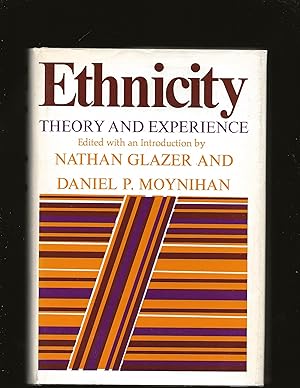Orlando L Martin (2 results)
Product Type
- All Product Types
- Books (2)
- Magazines & Periodicals
- Comics
- Sheet Music
- Art, Prints & Posters
- Photographs
- Maps
-
Manuscripts &
Paper Collectibles
Condition
- All Conditions
- New
- Used
Binding
- All Bindings
- Hardcover
- Softcover
Collectible Attributes
- First Edition (1)
- Signed
- Dust Jacket (1)
- Seller-Supplied Images (1)
- Not Printed On Demand
Seller Location
Seller Rating
-
AGRICULTURE OF VERMONT, FIRST ANNUAL REPORT OF THE COMMISSIONER OF AGRICULTURE OF THE STATE OF VERMONT 1909
Published by Capital City Press Printers, Montpelier
Seller: Melanie Nelson Books, Livingston, NY, NY, U.S.A.
Book
Hardcover. Condition: Very Good. -----------Black spine and light colored covers, book is 9" tall. total of 473 pages, each section numbered pages separately.VERY GOOD CONDITION, tight solid binding, clean text, light shelfwear only- - no dust jacket.
-
Ethnicity: Theory And Experience (Daniel Bell's book)
Published by Harvard University Press, Cambridge, Massachusetts, 1975
Seller: Rareeclectic, Pound ridge, NY, U.S.A.
Book First Edition
Hardcover. Condition: Near Fine. Dust Jacket Condition: Very Good. 1st Edition. First Edition (SD, NAP). This was Daniel Bell's book. He contributed an essay titled Ethnicity and Social Change. He did not write his name in the book. He did, curiously, put a parenthetical line beside two paragraphs in his own essay. He did this again only a few times, once on page 306 and 312, and twice on page 313. On the rear flap he wrote '1 +2-- Modernity', and referenced page 306 with the words 'Orlando structured' and page 313 with a word I can't make out. Orlando Patterson was the author of the essay, titled Context and Choice in Ethnic Allegiance, in which these pages appeared. Glazer and Bell went to college together and taught together. Here's a quote from Glazer's Wikipedia profile: 'When Glazer attended the City College of New York in the 1940s, it was known as a hotbed of radicalism. Glazer fell in with a number of other young Marxists who were hostile to Soviet-style communism. Glazer, Irving Howe, Daniel Bell, and Irving Kristol would meet in an alcove of the City College cafeteria, and they spent their days trying to understand how the socialist ideal of political and economic justice had ended in Joseph Stalin?s murderous tyranny. As Glazer would later recall, 'one of the characteristics of our group was a notion of its universal competence. Culture, politics, whatever was happening we shot our mouths off on. It was a model created by the arrogance that if you're a Marxist you can understand anything and it was a model that even as we gave up our Marxism we nevertheless stuck with.' Dr. Bell took very good care of the book. The edges and corners are in excellent shape. The spine looks very good, just a little crinkling at the top edge. The page edges are very clean. The book is very solidly bound from cover to cover with nicely tight pages throughout and nicely tight covers as well. The pages are exceptionally clean. I'm not finding any soiling. I'm not finding any conspicuous creasing, no turned-down corners or placeholder creases. There are no markings. No attachments of any kind. And Dr. Bell's handful of penned margin lines represent the only writing to be found anywhere in the book. I've always had the dust jacket in a fitted protective cover. It looks very clean. I'm not noticing any tears. There's a very small loss at the top rear corner. There is a thin crease coming down from the rear top edge. The flaps are in very good shape, very clean, a couple of tiny crinkles. I've already noted the penned notes on the rear flap which also include '1975.' From the dust jacket: 'This volume launches a far-reaching exploration into the meaning, manifestations, and significance of ethnicity in modern society and politics. The authors seek neither to celebrate nor to deplore ethnicity, but rather to examine it as a basis of social organization which in modern societies has achieved a significance comparable to that of social class. Ethnicity indicates that minority groups around the world are no longer doing what society for hundreds of years has expected them to do-- assimilate, disappear, or endure as exotic, troublesome survivors. Instead, their numbers have expanded by immigration, their experiences and struggles mirrored to one another by the international mass media, minorities have become vital, highly conscious forces within almost all contemporary societies. Ethnicity has played a pivotal role in recent social change; it has evolved into a political idea, a mobilizing principle, and an effective means of advancing group interests.'.



